Sealife guideThe Scyphozoans classThe taxonomy of marine species
Explore the taxonomy of cnidarians and especially sea anemones, corals and jellyfish !
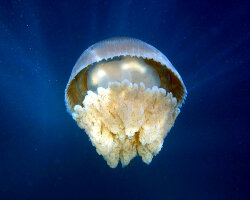
Blue blubber jellyfish
(Catostylus mosaicus)
(Catostylus mosaicus)
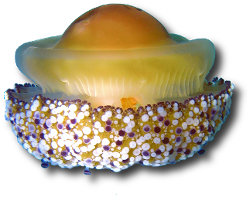
Fried egg jellyfish
(Cotylorhiza tuberculata)
(Cotylorhiza tuberculata)
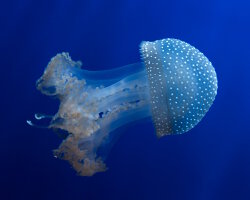
White spotted jellyfish
(Phyllorhiza punctata)
(Phyllorhiza punctata)
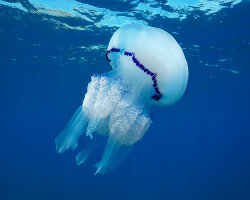
Barrel jellyfish
(Rhizostoma pulmo)
(Rhizostoma pulmo)
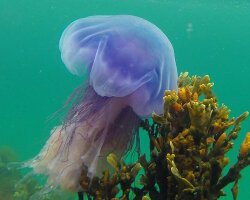
Blue jellyfish
(Cyanea lamarckii)
(Cyanea lamarckii)
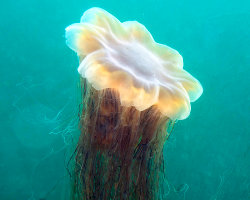
Lion's mane jellyfish
(Cyanea capillata)
(Cyanea capillata)
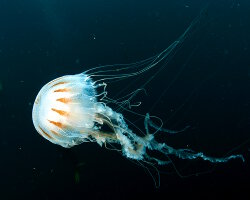
Atlantic sea nettle
(Chrysaora quinquecirrha)
(Chrysaora quinquecirrha)
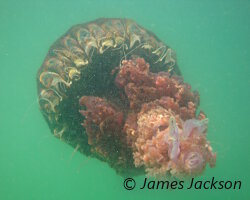
Black sea nettle
(Chrysaora achlyos)
(Chrysaora achlyos)
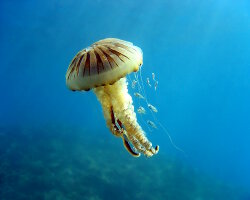
Compass jellyfish
(Chrysaora hysoscella)
(Chrysaora hysoscella)
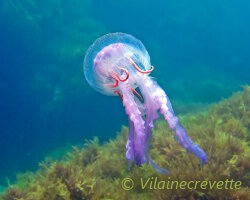
Purple-striped jelly
(Pelagia noctiluca)
(Pelagia noctiluca)
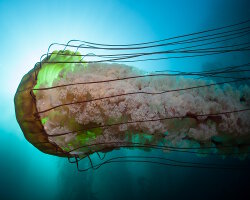
Sea nettle
(Chrysaora fuscescens)
(Chrysaora fuscescens)
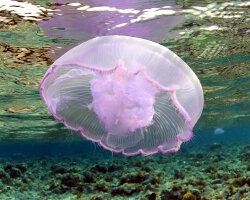
Moon jellyfish
(Aurelia aurita)
(Aurelia aurita)
Our latestUpdates
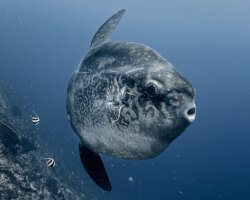
Friday, September 5th 2025
The bump-head sunfish
Learn about the bump-head sunfish (Mola alexandrini), the world's heaviest bony fish, its habitat in tropical and temperate oceans, diet of jellyfish, deep-water behavior and record size over 6,000 lbs.
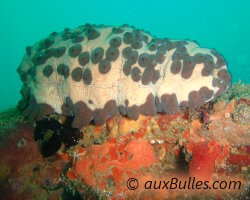
Wednesday, September 3rd 2025
The chocolate chip sea cucumber
The chocolate chip sea cucumber has a massive cylindrical body that is beige in color, covered with a set of dark brown pustules resembling chocolate chips that protrude slightly from the surface, giving it a resemblance to a cookie, hence its french name. It can reach a length of about 12 inches when fully grown.
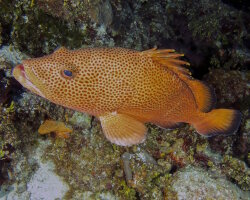
Monday, September 1st 2025
The red hind grouper
The red hind grouper has a distinctive appearance, usually beige to brown in color, with numerous red or brown spots covering its entire body and the base of its fins. It is often found in the shallow waters of coral reefs and rocky areas, where it hides in crevices and cavities.
Photo of the Day
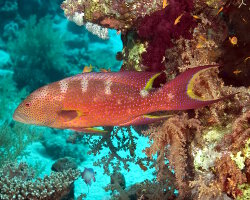
Mérou croissant de lune
(Variola louti)
(Variola louti)
